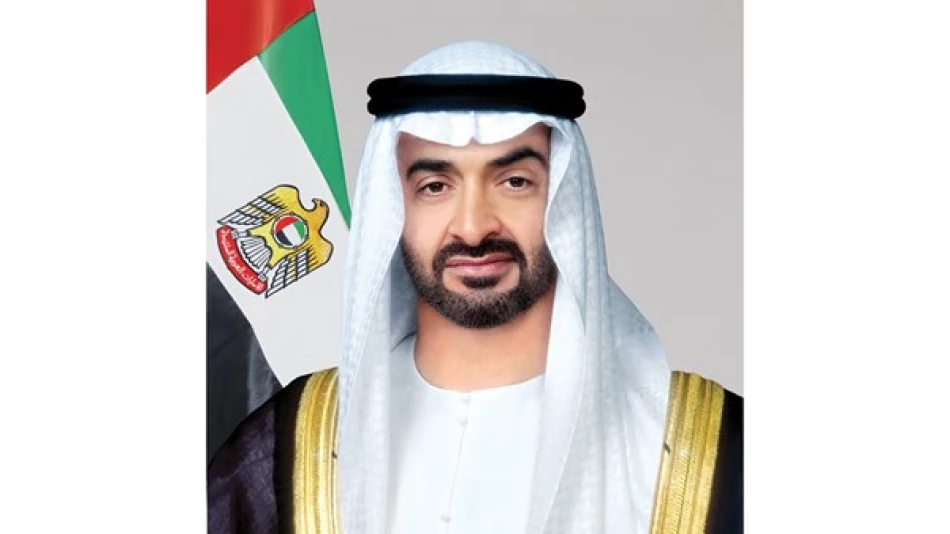
UAE President Congratulates Leaders on Historic Armenia-Azerbaijan Peace Deal
UAE President Hails Historic Armenia-Azerbaijan Peace Agreement as Regional Game-Changer
UAE President Sheikh Mohammed bin Zayed Al Nahyan has congratulated the leaders of Armenia and Azerbaijan on their historic peace agreement, marking a potential turning point for the volatile South Caucasus region. The endorsement underscores the UAE's growing diplomatic influence and its strategic pivot toward conflict mediation in key global flashpoints.
Presidential Praise for White House Diplomacy
In a statement posted on X (formerly Twitter), Sheikh Mohammed congratulated Azerbaijani President Ilham Aliyev and Armenian Prime Minister Nikol Pashinyan on the recently signed peace accord at the White House. He specifically praised the role of the United States and President Donald Trump in facilitating the breakthrough agreement.
"I congratulate President Ilham Aliyev of Azerbaijan and Prime Minister Nikol Pashinyan of Armenia on the historic peace agreement recently signed at the White House," Sheikh Mohammed wrote. "I appreciate the role of the United States and President Trump in reaching this agreement, and I hope it will be the beginning of fruitful relations between the two countries for the benefit of their peoples and peace in the Caucasus region."
UAE's Strategic Diplomatic Positioning
The UAE leader's statement reflects his country's broader foreign policy strategy of positioning itself as a stabilizing force in regional conflicts. Sheikh Mohammed emphasized that the UAE "supports every step on the path of peace and stability in the world and the settlement of disputes through diplomatic means for the good and prosperity of all."
Regional Implications and Economic Opportunities
This peace agreement could unlock significant economic potential in the South Caucasus, a region that serves as a crucial energy and trade corridor between Europe and Asia. For the UAE, which has increasingly diversified its diplomatic and economic partnerships beyond traditional Gulf allies, the Armenia-Azerbaijan reconciliation opens new avenues for investment and trade relationships.
The UAE's congratulatory message also signals its intent to play a more prominent role in international conflict resolution, following successful mediation efforts in other regional disputes and its growing influence in Middle Eastern diplomacy.
Broader Context of Caucasus Stability
The Armenia-Azerbaijan conflict has been one of the most intractable disputes in the former Soviet space, with tensions periodically erupting into full-scale warfare. Any sustainable peace agreement would represent a major diplomatic victory for U.S. foreign policy and could serve as a template for resolving other frozen conflicts in the region.
The UAE's public endorsement adds weight to the agreement and demonstrates how Gulf states are increasingly engaging with geopolitical developments beyond their immediate neighborhood, reflecting their growing confidence and resources in international affairs.
Most Viewed News

 Layla Al Mansoori
Layla Al Mansoori






